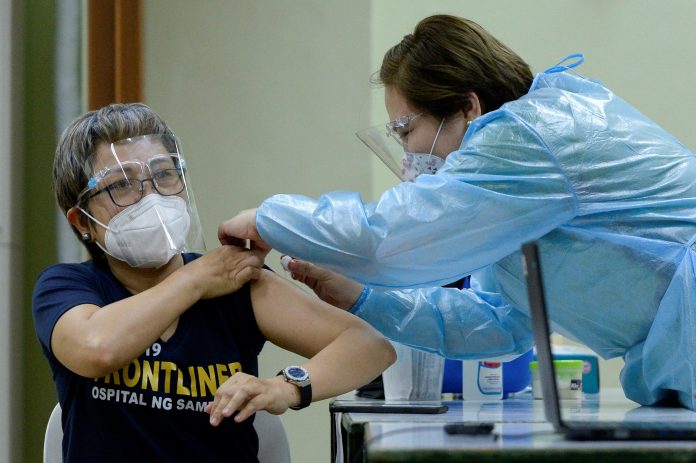Amnesty International called on the Philippine government to develop and implement policies rooted in human rights to ensure that COVID-19 vaccines are available, accessible, and free to all.
The group noted that recent developments have raised concerns about the government’s preparedness to ensure that COVID-19 vaccinations will be available to everyone.
Amnesty International said the vaccination program should be done in a manner that is “transparent, non-discriminatory and accountable” and should prioritize those most at-risk and vulnerable.
The Philippine vaccine rollout is expected to begin in February 2021, based on a November 2020 plan that prioritizes frontline health and other essential workers, older adults, people living in poverty and uniformed personnel during the first phase.
Frontline workers include health care workers in public and private health facilities, as well as other essential workers in social services, local government and detention facilities.
In all, these groups comprise nearly 23 percent of the country’s population, or about 24 million people.
The national government has announced the allocation of about US$ 1.5 billion under its 2021 national budget to purchase about 60 million doses of COVID-19 vaccines to cover the first phase of the vaccination plan.
Several local government units have struck deals with the national government and pharmaceutical companies to buy and administer the vaccine to their constituents.
However, it is unclear how the national government will ensure that the local government’s guarantee non-discrimination and the prioritization of marginalized and at-risk groups in their vaccine rollout.
Amnesty International said that within a context in which health care facilities and services have suffered from decades of neglect, “the Philippine government must also invest the maximum available resources to strengthen its health system to ensure preparedness for COVID-19 vaccines and continue to deliver other health services.”
“Investments should be made with a goal of building a more robust national health system that can sustainably increase the availability, accessibility, affordability and quality of health facilities, goods and services for all people,” read the group’s statement.
The group said the pandemic should be a reminder to the Philippine government to not only update and maintain health care systems, but also recruit and train health workers, and ensure that they receive fair wages and work under acceptable conditions that likewise protect their own health, safety and well-being.









